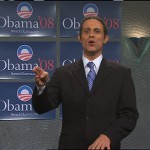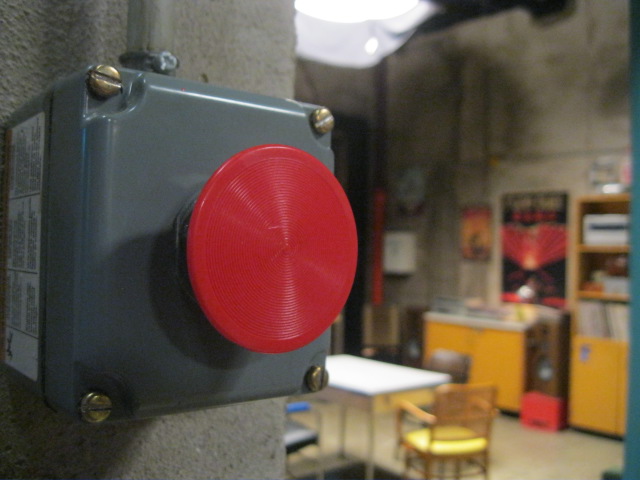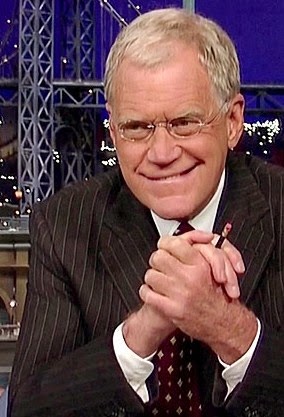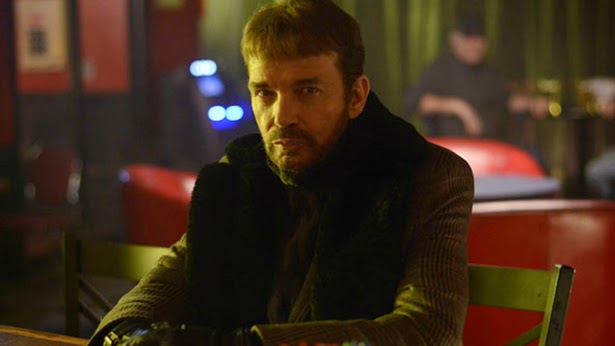 Had a blast yesterday chatting on stage with James Manos Jr (above, being awarded an eight-year-old Chrysler Neon. Photo courtesy Playback’s special reports editor Suzan Ayscough). He was flown in from L.A. to be part of the day-long Playback Innovations Forum at the St. Lawrence Centre. Manos created Dexter and won an Emmy writing scripts for David Chase on The Sopranos. He also supervised The Shield, linking him to three of the most iconic anti-heroes in the history of television.
Had a blast yesterday chatting on stage with James Manos Jr (above, being awarded an eight-year-old Chrysler Neon. Photo courtesy Playback’s special reports editor Suzan Ayscough). He was flown in from L.A. to be part of the day-long Playback Innovations Forum at the St. Lawrence Centre. Manos created Dexter and won an Emmy writing scripts for David Chase on The Sopranos. He also supervised The Shield, linking him to three of the most iconic anti-heroes in the history of television.
So when I asked him right off the bat to answer the burning question everyone in the room was dying to have answered–Obama or McCain?–he immediately blurted, “God, I dunno–I probably would have killed them both.” Meaning, that’s what he did on his shows–dreamed up victims and villains for his ant-heroes to whack.
Manos, however, who is very much a dude from the neighborhood in New York forced to work and live in hated Los Angeles, realized he’d just pretty much uttered a felony under U.S. law. He back peddled faster than McCain at another rally gone wrong. It was a punchy, edgy and outrageous start to our hour on stage, and I think the writers and other industry folk in the audience found plenty of fun and insight in the next 60 minutes.
The audience members I spoke with yesterday included omnipresent Border scribe Denis McGrath, who I bumped into again Monday at the CBC mid-season launch as well as last night’s HBO Canada event (read his paying customer take on the whole Playback Forum deal here). McGrath was all over Manos comment that lead series characters really do not grow or change in the course of a series, but you always have to lie to networks and studios when pitching these shows and say that they do.
It sounds exactly wrong, but when you think about it, he’s right. If Dexter Morgan ever really changes, the series is over. He has to remain a sociopath serial killer. Same with Vic MacKay and even, despite all those therapy sessions, Tony Soprano. Even sitcom characters don’t really change that much over time; think Cheers‘ Sam Malone or Dr. Frasier Crane.
Manos suggested there is often some change usually in the first 20 minute of the pilot which sets up the series. He says movies are different, they’re often all about a life-changing moment in a character’s life, leading to some sort of resolution.
In a series, though, character resolution is death. I did not know that.
Manos was also incredibly candid about being squeezed out of his own series. After taking the original Dexter novel and crafting it into a series, including full outlines on the first season’s 12 episodes, he clashed with his associate producers and in one of those too-typical Hollywood power struggles found himself sidelined from his own series. As creator, he took a big bag of money with him (including continuing residuals), but you could tell that if he was still penning Dexter scripts, the hero would have carved up a couple of back stabbing, know-nothing, non-creative type producers by now.
Fascinating, too, were his comments about his own writing process. We talked about the legend of Deadwood and NYPD Blue genius David Milch, about tales of him lying on his back in the dark, barking random thoughts that are written down by underlings and turned into scripts. Manos, who has worked with Milch and holds him in the highest regard, says those stories are true. He once visited the great man and had to step over page after page of Milch’s scattered brilliance just to get to the couch.
Manos has his own wacky method–he writes on walls. Paper is pinned up and the dude starts scrawling it all out in long hand. His lady then pulls down the pages and assembles it into a coherent script. This is stuff they don’t teach you at Humber or Ryerson.
After the session, Manos told a few more tales at a small gathering at a local watering hole near the St. Lawrence Centre he had already staked out. The story of his Emmy night victory was especially hilarious. Manos missed the big moment when his name was announced–he had stepped outside to have a smoke, leaving David Chase alone on stage to accept for them both.
Manos had lost track of time chatting up pals in the smoke station when his cell phone rang. It was his mom, watching the Emmy Award back home in New York, telling him to get the hell back into the auditorium. When he told this story later at the Emmy press scrum his mom chewed him out all over again when her name and this story appeared in her local paper.
Manos dad sounded like an interesting character, too. The late James Manos Sr. was a real, live, rocket scientist, part of the team that worked on the lunar module that landed in the moon. How cool is that.

Next Post





